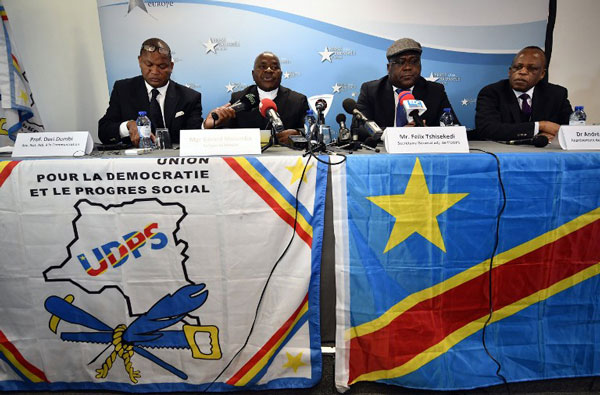
Felix Tshisekedi, son of The Democratic Republic of Congo’s opposition coalition late leader Etienne Tshisekedi, has been picked to succeed him despite objections by at least two groups in the alliance.
According to BBC, Tshisekedi was chosen this week by nine opposition groupings challenging President Joseph Kabila.
The body of Congolese opposition leader Etienne Tshisekedi is to be repatriated next week, several weeks after his death, his party said, raising hopes of a restart of talks on a deal to end the political crisis.
Tshisekedi’s death and the delay over repatriating his body from Brussels have blocked the implementation of a December 31 accord between the government and the opposition to end a crisis triggered by President Joseph Kabila’s refusal to stand down.
The 84-year-old Tshisekedi, head of the Union for Democracy and Social Progress (UDPS), died in Brussels on February 1, eight days after leaving the Democratic Republic of Congo for medical care abroad.
His death plunged the vast African country further into uncertainty, as he had played a key role in negotiations aimed at peacefully resolving the political crisis.
And angry words and jockeying for power have snared efforts to give “Tshishi”, or “Papa”, as he was known, a fitting funeral in Kinshasa.
The Rassemblement opposition coalition had demanded the nomination of a new prime minister and the swearing-in of his government before the body is repatriated, while the government had made resumption of negotiations on the accord conditional on a “dignified funeral” for Tshisekedi.
Angry young opposition demonstrators burned tyres outside UDPS headquarters in Kinshasa on Wednesday, shouting slogans against Kabila and the Tshisekedi family and accusing them of prioritising the return of the body over the hard-fought deal.
“The repatriation of the body is not urgent,” said protester Mfumu Sabata. “It’s the implementation of the deal that will guarantee a peaceful funeral.”
– ‘Information purposes only’ –
The Catholic Church, which is overseeing the deal, has said the talks to implement it can only start after Tshisekedi’s funeral.
The UDPS “has noted the decision of the biological family… to repatriate his body on March 11, 2017”, party spokesman Augustin Kabuya said.
But the interior minister of the provincial government for Kinshasa, Emmanuel Akweti, said that date is “for information purposes only”.
Akweti has also said the firm building Tshisekedi’s memorial site must tell authorities and the family when their work will be finished before the burial can take place.
Under the terms of the deal, Kabila would remain in office until elections at the end of 2017 but a transitional council was to be established under Tshisekedi.
Kabila has called on the Rassemblement to choose a replacement for Tshisekedi, who would then present three candidates for the post of prime minister.
The longer the stalemate continues, “the less likely it is that elections can be organised by the end of 2017,” said Philemon Mwamba, a professor of political science at the University of Kinshasa.
“Politicians from all sides are not ready to go to elections,” he said.
“As long as the people on the street do not pressure them, we could stay like this for a few years.”
Tshisekedi led opposition to Laurent Kabila, who took office by force in 1997, followed by his son Joseph who became president after his father’s assassination in 2001.
Beaten in 2011 elections tainted by massive irregularities, Tshisekedi refused to recognise Kabila’s legitimacy to the very last.
 The Independent Uganda: You get the Truth we Pay the Price
The Independent Uganda: You get the Truth we Pay the Price





